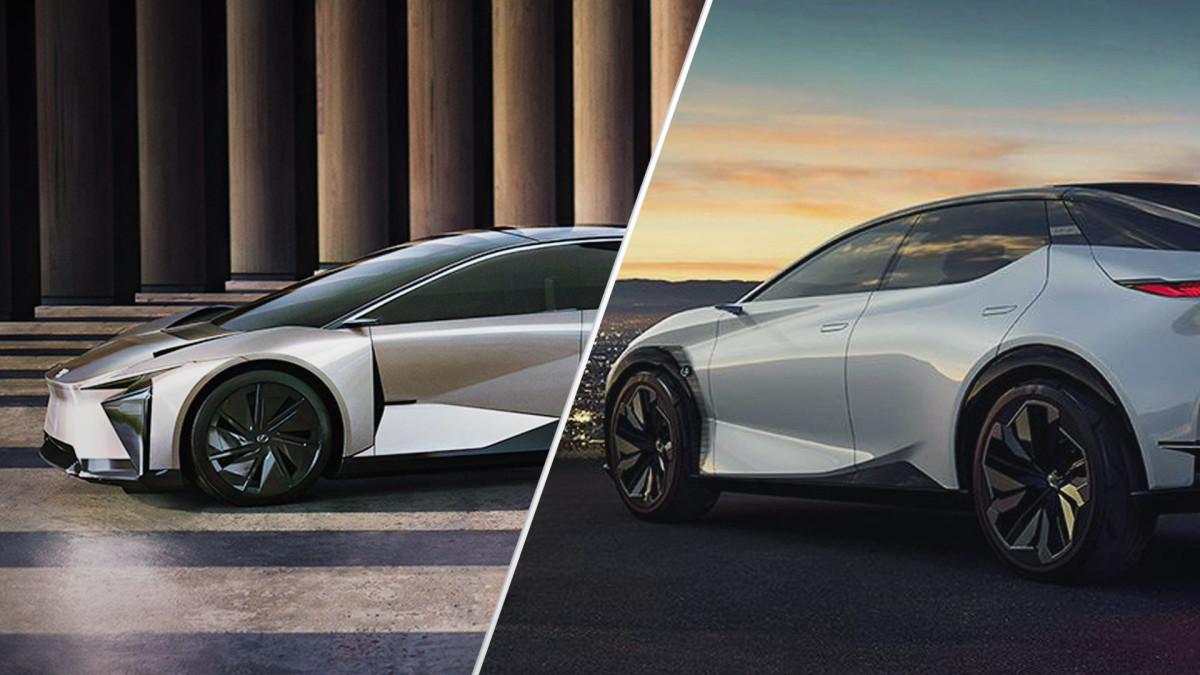
As Tesla (TSLA) -) sheds prices of its most popular models to secure its market share, many other manufacturers are looking to challenge Elon Musk's electric car giant with their own EVs.
However, one manufacturer's new concept cars prove that their brand can be a real threat to the Austin, Texas brand. It also has the luxury car chops to blow them out of the water.
Enter luxury giant Lexus
View the original article to see embedded media.
Toyota (TM) -) luxury division Lexus has just upped the ante in the electric car market, as it unveiled the futuristic LF-ZC and LF-ZL concept cars at the Japan Mobility Show in Tokyo on October 25.
The smaller of the bunch; the LF-ZC is around the same size as one of the best-selling EVs on the market; the Tesla Model 3. On first glance, what separates it from Elon Musk’s machine is its avant-garde, angular sports sedan design, featuring distinct cuts and a side profile that can be likened to the visual features of a diamond.
Related: A key Ford executive has a controversial take about Americans and electric vehicles
The larger LF-ZL, by comparison, is a properly large car, slightly bigger than Lexus’ LX off-road flagship SUV. Acting as the bigger SUV counterpart to the LF-ZC, the hard angles are slightly softer than that of the futuristic sports sedan, but are designed to stand out. Namely, the LF-ZL features sliding rear doors and a sloped-back roofline that seems to be inspired by the Tesla Model X.
Lexus takes a page out of the Tesla playbook
View the original article to see embedded media.
Like Tesla, the two offerings by Lexus utilize the advanced manufacturing technique known as gigacasting, which allows the Japanese marque to efficiently assemble cars like the LF-ZC and LF-ZL. The process splits the bodies of the cars into three key parts; the front, center and rear, which enables them to be structurally independent of one another and use new and improved battery technology.
Additionally, the cars have the ability to move down the assembly line autonomously by driving with just its battery, motor, tires and wireless controllers.
According to Lexus, the batteries on both these cars will have a prismatic structure that compacts the batteries and reduces the overall weight of the vehicle. With this technology, they aim to have better range than most traditional electric vehicles.
View the original article to see embedded media.
Both concepts are four seaters packed with lots of technology for both drivers and passengers. The interiors of these cars are expansive and feature extensive use of bamboo, digital screens, as well as a Tesla-style yoke steering wheel and panoramic glass roofs. Backseat passengers in the larger LF-ZL can also enjoy a first class experience with its reclining seats.
The centerpiece of the driving experience of these two concepts is an advanced voice recognition system developed for the car called “Butler.” Utilizing artificial intelligence and Arene OS, the system personalizes various car functions and characteristics to assist or enhance the driving experience.
More business of EVs:
- A full list of EVs and hybrids that qualify for federal tax credits
- Here’s why EV experts are flaming Joe Biden’s car policy
- The EV industry is facing an unusual new problem
No information about any of the car’s power figures or electric drivetrain has been shared, but Lexus does note that the LF-ZC uses their proprietary Direct4 all-wheel-drive system and uses a similar steer-by-wire system to the Lexus RZ, which uses motors and sensors in lieu of a traditional steering column.
Lexus says that the LF-ZL will remain a concept car at the moment, noting that the large EV is a “glimpse into a future where mobility, people, and society are seamlessly connected.” The LF-ZC, on the other hand, is a preview of a production model that will arrive by 2026.
Get investment guidance from trusted portfolio managers without the management fees. Sign up for Action Alerts PLUS now.







